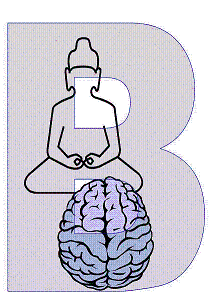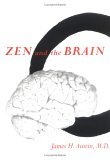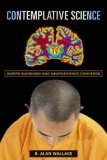September 16, 2007
“There are two kinds of people…..” (and many ways to divide people into two kinds!)
“Categorization is the process in which ideas and objects are recognized, differentiated and understood. Categorization implies that objects are grouped into categories, usually for some specific purpose.” (from Wikipedia)

A good introduction to the topic for the general reader can be found in The Mind’s New Science: A History of the Cognitive Revolution by Howard Gardner (New York: Basic Books, 1985, 1987) – Ch. 12 “A World Categorized.”
by Howard Gardner (New York: Basic Books, 1985, 1987) – Ch. 12 “A World Categorized.”
The work of Eleanor Rosch was instrumental in overturning the classical view of categories based on “necessary and sufficient conditions” in favor of a psychological approach to the structure of categories based on prototypes.
Rosch discusses her work on categorization in this transcribed interview: “Categories have what I called a graded structure of better and worse examples, and many categories have unclear boundaries”
Books on categorization:
Comments (0)
- alphabet,mind
September 7, 2007
 Continuing the “mind alphabet”… The intersection between Buddhism and Western brain/mind science is a burgeoning field…
Continuing the “mind alphabet”… The intersection between Buddhism and Western brain/mind science is a burgeoning field…
Other titles:



Comments (1)
- alphabet,mind
September 5, 2007

Abstract: The concept of attention is defined by multiple inconsistent metaphors that scientists use to identify relevant phenomena, frame hypotheses, construct experiments, and interpret data. (1) The Filter metaphor shapes debates about partial vs. complete filtering, early vs. late selection, and information filtering vs. enhancement. (2) The Spotlight metaphor raises the issue of space- vs. object-based selection, and it guides research on the size, shape, and movement of the attentional focus. (3) The Spotlight-in-the-Brain metaphor is frequently used to interpret imaging studies of attention. (4) The debate between supramodal and pre-motor theories of attention replays the dichotomy between the Spotlight and the Vision metaphors of attention. Our analysis reveals the central role of metaphor in scientific theory and research on attention, exposes hidden assumptions behind various research strategies, and shows the need for flexibility in the use of current metaphors.
also by the same authors:
“Cause and Effect Theories of Attention: The Role of Conceptual Metaphors” Citation: Review of General Psychology. Vol. 6, No.2, June 2002 (139-152)
Abstract: In everyday discourse, as well as in science, concepts of attention are defined by metaphors. In scientific theories these metaphors determine what attention is and what count as adequate explanations of the phenomena. We analyze these metaphors in the context of three types of attention theories: (1)’Cause’ theories, in which attention is presumed to modulate information-processing (e .g., Attention as a Spotlight ; Attention as a Limited Resource), (2 )`effect’ theories, in which attention is considered to be the by-product of information-processing (e.g., the Competition metaphor), and (3) hybrid theories that combine `cause’ and `effect’ aspects (e .g., Biased-Competition models). Our analysis reveals the crucial role of metaphors in cognitive psychology, neuroscience, and the efforts of scientists to find a resolution to the classic problem of `cause’ versus `effect’ interpretations.
Comments (0)
- alphabet,mind
September 3, 2007
A Mind Alphabet – I got this idea from Bella Dia’s “Encyclopedia of Me Meme” but will be adapting it to the “mind on books” theme. It seems like a good way to explore some different mind-related topics. I may do more than one topic for each letter & intersperse them among other posts.
*****
Attention – a collection of notes & resources
What is the ideal form of attention – the ability to stay in focus, or the ability to shift, strengthen and loosen focus at will?
Without attention, information that our senses take in – what we see and hear, feel, smell, and taste – literally does not register in the mind. It may not be stored even briefly in memory. What you see is determined by what you pay attention to. …

Paying attention physically damps down activity in neurons other than those involved in focusing on the target of your attention. … Attention, then, pumps up neuronal activity. Attention is real, in the sense that it takes a physical form capable of affecting the physical activity of the brain. [p. 158]
Begley goes on to discuss the relationship between attention and neuroplasticity, based on some experiments with monkeys in which cortical areas expanded in response to attention paid to corresponding sensory inputs.
(more…)
Comments (0)
- alphabet,mind
by Howard Gardner (New York: Basic Books, 1985, 1987) – Ch. 12 “A World Categorized.”
by George Lakoff (Chicago : University of Chicago Press, 1987). [listed first at both WorldCat and LibraryThing, the most popular book on the topic at both institutional and personal libraries]
by Susan A Gelman et al; Society for Research in Child Development. (Chicago, IL : University of Chicago Press, 1998). (JSTOR) (more…)






